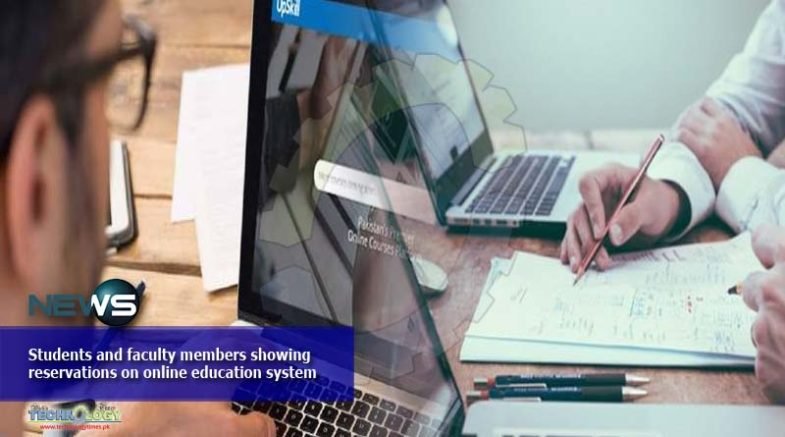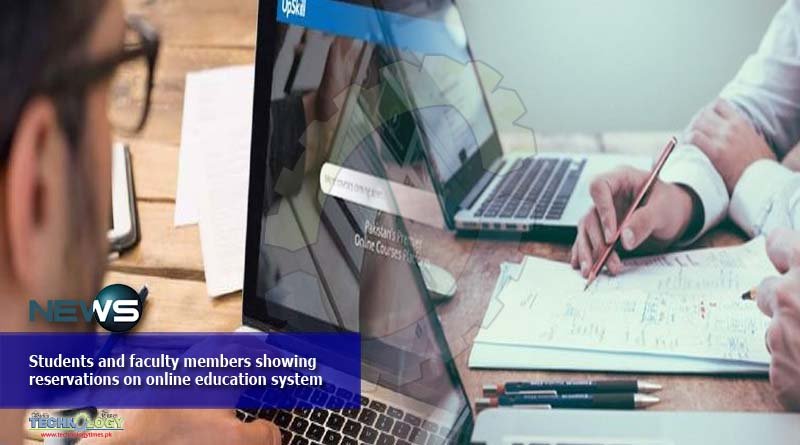Problems have started appearing in the online education system adopted by various universities in the wake of closing of all educational institutions to overcome the spread of Covid-19 pandemic in the country.
 Hundreds of students and faculty members of various universities lodged complaints on Prime Minister’s Portal related with the online teaching system’s quality of instruction, digital readiness of the instructor, poor internet connectivity etc.
Hundreds of students and faculty members of various universities lodged complaints on Prime Minister’s Portal related with the online teaching system’s quality of instruction, digital readiness of the instructor, poor internet connectivity etc.
These complaints fall into different categories, including connectivity problems faced by the students, especially those residing in remote areas of FATA, Balochistan, Gilgit-Baltistan and AJK where 3G technology is not available yet.
The students in these areas are also facing difficulties in recharge their SIMs, get internet packages, or reload balance because of the current restrictions and many of them were unable to comprehend online lectures because of poor streaming.
Faculty members have also expressed their concerns and were reluctant to visit the respective campuses for delivering online lectures.
The students have also reservations about the quality and effectiveness of online teaching like they are unable to ask questions during lecture. They also complain about the voice quality of audio lectures which they find inaudible, besides quality of teachers who, they say is not properly trained in online communication, neither they can provide assessment writing service.
Registrar Virtual University of Pakistan (VUP) Dr Mohsin Javed told that the currently using conventional mode of teaching was different from online teaching system.
He said the various universities did not have any mechanism for initiating the online teaching system like Learning Management System (LMS) of the Virtual University. These universities don’t have any consistent connectivity system between student and teacher and no one knows whether all students and teachers have gadgets like laptop and internet.
He informed that three things were important in running online teaching system such as content delivery, course handling, and evaluation. These universities also don’t have any centralized email system and most of their teacher cannot send educational material to students via email without getting proper training.
He told VU start helping 14 universities to construct online education system on the direction of the Higher Education Commission (HEC) However it would take some time to become operational.
Prime Minister Imran Khan had asked the HEC for drafting policy guidelines for all educational institutions, including colleges, universities and madressahs related to continuity of academic activities during closure of Covid-19 pandemic.
The government had closed all academic institutions until May 31 in the wake of Covid-19 pandemic with directions that the time of break would be treated as summer vacations.
It states that HEC has established a Technical Support Committee (TSC) for giving all necessary support for the transition to online mode of learning. The TSC had identified requirements and process for the establishment of LMS and universities could approach it at covid19-tsc@hec.gov.pkfor acquiring the system.
The HEC is establishing a National Knowledge Bank (NKB) for giving online access to a range of academic materials, including curricula, syllabuses, lists of textbooks, links to digital libraries, lesson plans, video lectures, PPTs, exam questions, quizzes and assignments.
Similarly, the National Academy for Higher Education (NAHE) has been given task for arranging or recommending online tutorials on skills and competencies needed for good quality online education.
The HEC issued directives to all the universities to protect health and lives of all stakeholders, including students, faculty members and other staff and ensure completion of semester. The full semester loss will also be loss for universities in financial terms so they should also be prepared for the future and try to establish policies, processes, systems, infrastructure and institutions.
